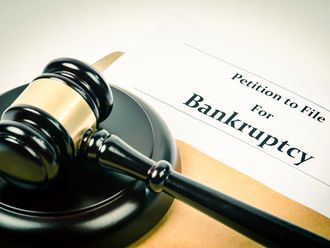The economic and strategic interests of Western countries have prevented the development of cooperative relations between the Gulf countries and Russia, whether it was Tsarist Russia of the 19th and early 20th century, or the Soviet Union of the past century. This, despite many potential cooperative opportunities and common interests shared by both GCC countries and Russia.
At the forefront of these potential opportunities is cooperating in the field of of energy. After all, Russia is a massive country that is abundant in natural resources. It has transformed into the world's largest oil producer in the past months, consequently surpassing Saudi Arabia. It is also among the three largest natural gas producers, providing Europe with one third of its natural gas needs.
Advantages
Moreover, Russia is considered to be one of the largest producers of electricity through nuclear reactors. In addition, it strives to develop renewable energy sources, which turned it into a major player in the global energy supply.
On the other hand, the GCC countries produce 20 per cent of the world's oil, and are gradually transforming into a global market for gas supplies and renewable energy, in particular, solar energy. They are also a major global producer of petrochemicals, aluminium and oil products. Therefore, Russia's population of 140 million can become a major market for GCC countries' products.
Russia can also utilise the advantages available in the GCC countries, such as their sophisticated financial structures, which are considered to be international financial centres with services and facilities that may contribute to the growth of the Russian economy.
Those important aspects, among others, have not been regarded seriously by both parties, despite the exchanged visits of many high profile GCC and Russian officials which have led to the signing of many trade agreements that may further strengthen cooperation between the parties.
In addition to official bodies, the GCC countries' private sector can also benefit from many trade and investment opportunities available in the Russian market, which holds many promising profitable revenues. Especially since the Federation of GCC Chamber of Commerce inaugurated a representative office in the Russian capital.
Changes in global trade
On the other hand, such an approach reflects the changes that dominate economic relations and international trade. While the GCC has strengthened its position in international relations in the last few years, it needs to diversify its economic relations, particularly boosting it with economically influential and developing countries such as China, India and Brazil.
Even though this does not mean neglecting the customary economic relations with primary partners, but global developments and mutual benefits on one hand, and the European Union's enforced trade restrictions on GCC countries on the other, calls for a reform of the GCC's global economic relations.
The GCC countries have exerted all efforts and expenditure in the span of 20 years to try and sign a free trade agreement with the EU countries, but to no avail. This hinders the GCC countries' imports to the European Union.
In spite of this, $141 billion (Dh517 billion) is the total value of bilateral trade between the GCC and the EU, $120 billion is the value of bilateral trade with Japan, and $48 billion with the United States of America. In comparison, the value of bilateral trade between the GCC and Russia does not exceed $6 billion, despite the large potential and investment opportunities present within both parties. Utilising these opportunities could provide an important contribution to the economic growth of both parties.
By preparing to sign a free trade agreement with China and India, the GCC countries have made progress in restructuring their trade relations. It is then possible to implement this approach with other developing countries, such as Brazil and Russia, who are influential in the energy market. As a result, this would allow coordinating and sustaining gas and oil prices in global markets, which is suffering from a state of heated speculation. This sometimes leads to the decline of energy prices, which does not suit the interests of gas and oil producing countries.
Dr Mohammad Al Asoomi is a UAE economic expert.












